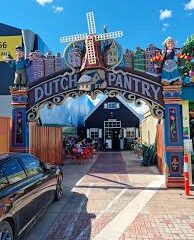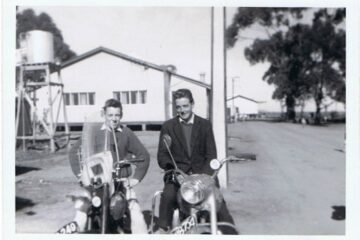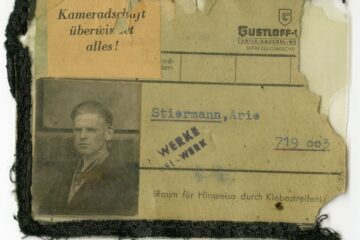John (Jan) Berends was born in 1937, in a village near Zwolle, where he attended high School (HBS – B). After successfully completing his secondary schooling, he was conscripted into National Service, although not quite voluntary, serving for 21 months. He obtained the rank of sergeant and was discharged in September 1958.
John was appointed as a mediator in the Employment Agency, but the job wasn’t for him. John decided to go to Australia but he didn’t meet the guidelines. Carpenters, bricklayers and farm labourers were needed, not someone who could speak five languages. Sometime later he reapplied as a farm labourer.
Hence in April, 1959 he began the journey of his new life, arriving on the “Oranje” at Station Pier in Melbourne some six weeks later on June 6. He was a government sponsored migrant, as he had no friends or relatives in Australia. Upon arrival he was interviewed by the immigration officer who gave him a ten-pound note. A family received twenty-five pounds. He was to go to Mount Gambier (S.A. Forest Commission) and when he refused, his identity card was stamped “not eligible for social services”, so he was on his own.
He found someone who directed him to Dandenong, 20 miles east of Melbourne, where he found accommodation. This was on a Friday and the following Monday he found a job, after a lot of foot slogging, in Notting Hill. He landed a job for 3 weeks (stocktaking), but stayed for 5 months.
Later on, he worked with the Bank of New South Wales (now Westpac) for a few years. It also entailed some time with the Bank’s shipboard agency, which met the migrants in Perth. In 1964 he resigned from the Bank (the migrants now came by plane). Which is another story.
In 1971, John married Judith Rumff in Dandenong, one of the early pioneering families in the area (see below).
Following that job, John bought a small business in Narre Warren, Victoria in those days a rural area, in wheeling and dealing which eventually led to his own business.
“John Berends Implements” began in October, 1966, an enterprise which has been very rewarding in many ways. He worked out of a weatherboard house in Narre Warren, manufacturing grader blades, rippers, car trailers and carryalls. Increased demand required bigger premises and in 1974, the business was moved to Greens Road, Dandenong. The business outgrew this soon and in 1978 moved to the present location in Frankston-Dandenong Road, Dandenong located on 3.5 hectares. By this stage the range of machinery had grown considerably. In 1997 after completing a Bachelor of Agricultural Science and working in the vegetable seed industry for several years, John’s son Derrick joined the business as General Manager. Derrick’s wife Meredith brought her skills as an Agricultural and Resource Economist to the business in 1998. In 2006 a further 2,000 square metres of factory and warehouse space was added to streamline production. Continued investment in the business is evident with recent additions of welding robots and a high speed plasma cutter. John Berends Implements will continue to provide strong, reliable and price competitive Australian made implements well into the future. With close to 60 years experience in the agricultural business, Berends is the benchmark in Australian agricultural machinery. John Berends Implements is a proudly Australian family owned and run business. JBI’s (John Berends Implements) market is mainly focused on Australia and New Zealand, although countries like New Caledonia and other Pacific islands are regular customers. JBI only sells through its dealer network.
In 1986, John Berends Implements brought Gibbins-Rawling and relocated all stock to Dandenong. Gibbins was founded in 1878, in Melbourne, as a manufacturer of a range of discs, harrows, grader blades and cultivation equipment. In the early 1970’s, Gibbins merged with Rawlings to produce Gibbins-Rawling Co. Gibbins-Rawling was the distributor for the Scandinavian based Kongskilde range of cultivation equipment.
Berends already had a large slice of the cultivation market, but believed a share of the trailing disc market would be beneficial. By taking on the Gibbins-Rawling range, Berends could offer a quality range of discs, which had already been tested in the field for many years. The Gibbins-Rawlings name and colours were kept until 1998, after which all machines were painted in Berends colours. The name has been retained, as it has a long and favourable history with the Australian farmer.
John Berends has been in Rotary since 1974, first with the Rotary Club of Dandenong East, followed by the Rotary Club of Seaford Carrum Downs and now with the Rotary Club of Casey.
In that time he has held many portfolios including President 4 times, Treasurer, International Director, Sergeant-at-Arms and Special Projects. Rotary has honoured John with a Paul Harris Fellowship Sapphire.
Over the years John and Judy were involved in hosting exchange students from Japan, Brazil, Alaska, Denmark, Sweden and South Africa. These were enriching and memorable experiences. After the Rotary Club of Seaford-Carrum Downs sponsored a five year old, East Timorese girl, Natalia, through ROMAC for heart surgery they had the pleasure of hosting her and her carer for five to six weeks whilst she recuperated.
John has had the pleasure of accompanying an Interplast medical team to Fiji as a Rotary observer.
Whilst living at Carrum Downs he has made his property available for successful club service activities, raising money for Rotary and various charities, which have also enhanced Rotary fellowship. They were a “Country and Western Day”, three “Tractor Pulls” and a Motor Cross Event.
Over a 3-year period John was instrumental in organising an annual community festival, which was most successful.
Since 1998 he has been involved in IFFR (International Fellowship of Flying Rotarians). The members get together at least twice a year in different parts of Australia for fellowship. Not only has John been the IFFR Australian President over a 2-year period, but he has organised three of the “get togethers” in different parts of Victoria. IFFR further enhances the ideals of Rotary in fellowship and service.
John has been a driving force in supporting charitable causes; strongly supported by Judy and their boys and daughters-in-law. Major support has been for Interplast teams, ROMAC, a Zimbabwean orphanage, the Red Shield appeal and many others.
He has been part of the board of management of their church, including 12 years as treasurer.
John has been involved with other organisations; for example, Victorian Farmers’ Federation (President Cranbourne branch) the Aeroclub and financial supporter of soccer and football clubs.
John and Judy and their two sons have visited the Netherlands on numerous occasions. They have five grandchildren; two in Canada where their youngest son Carl lives with his Canadian wife. Their eldest son Derrick is now the general manager of JBI, supported by his wife.
John and Judy now live in a retirement village, having sold their farm in Carrum Downs, where they had lived for 42 years.
March 2024
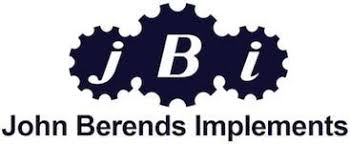
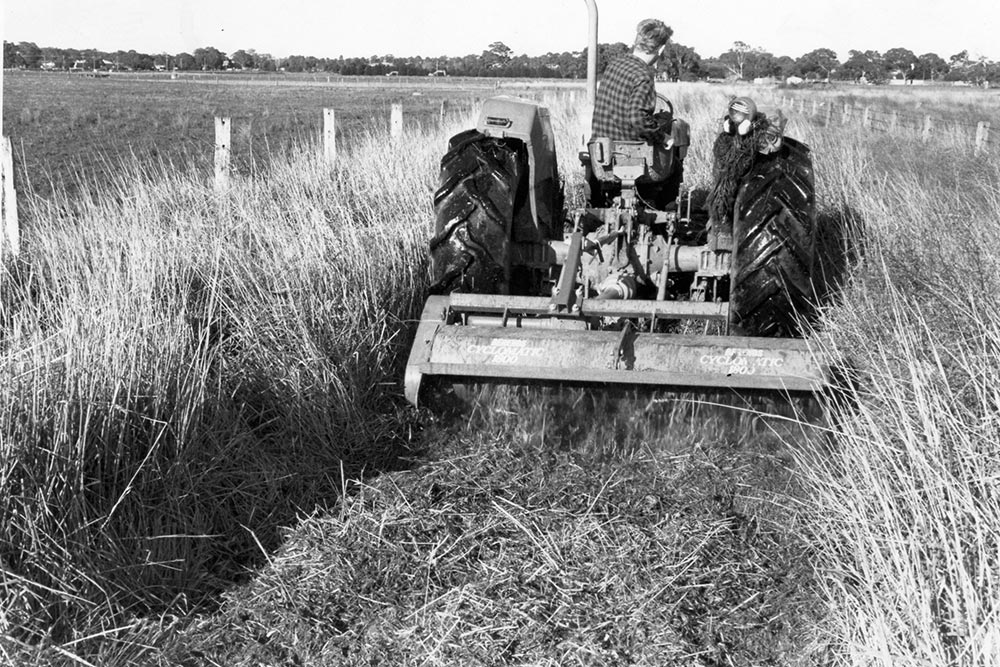
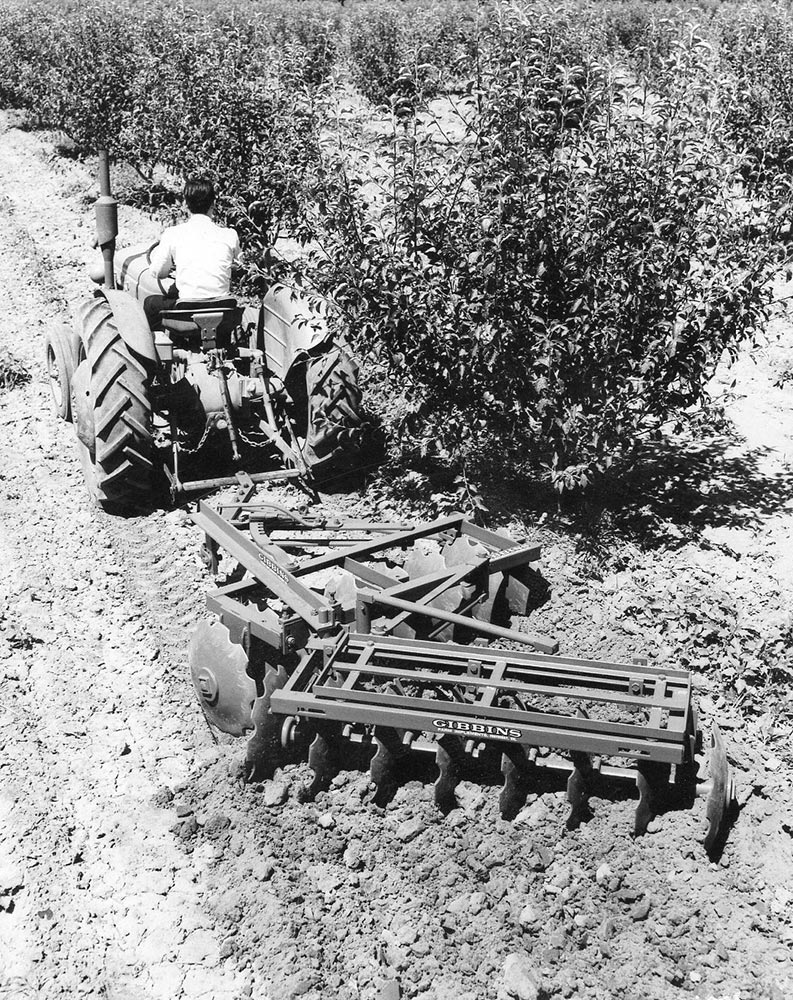
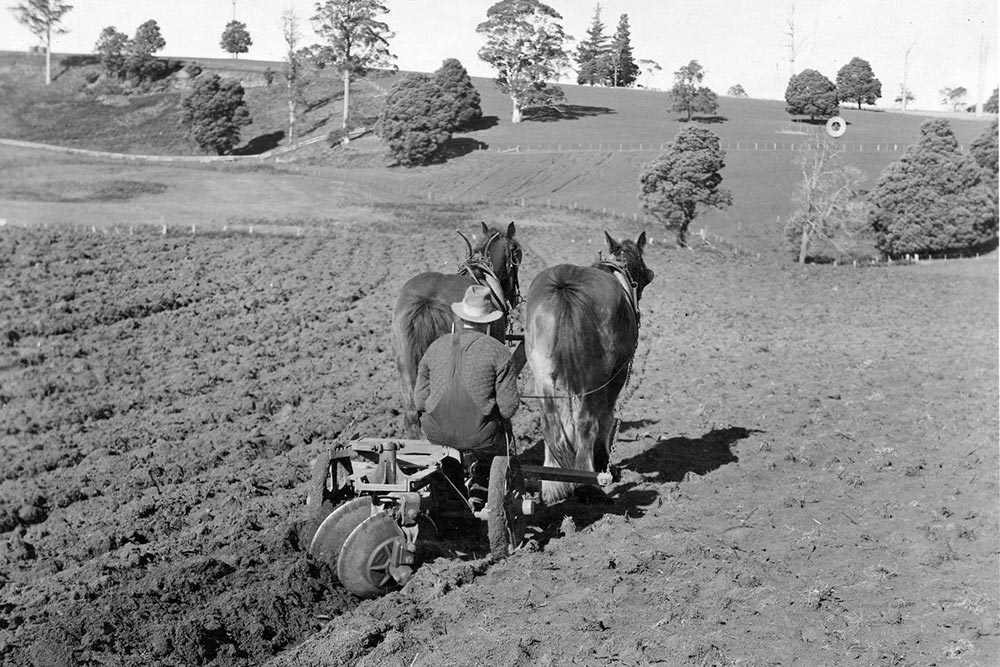
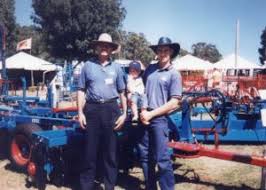
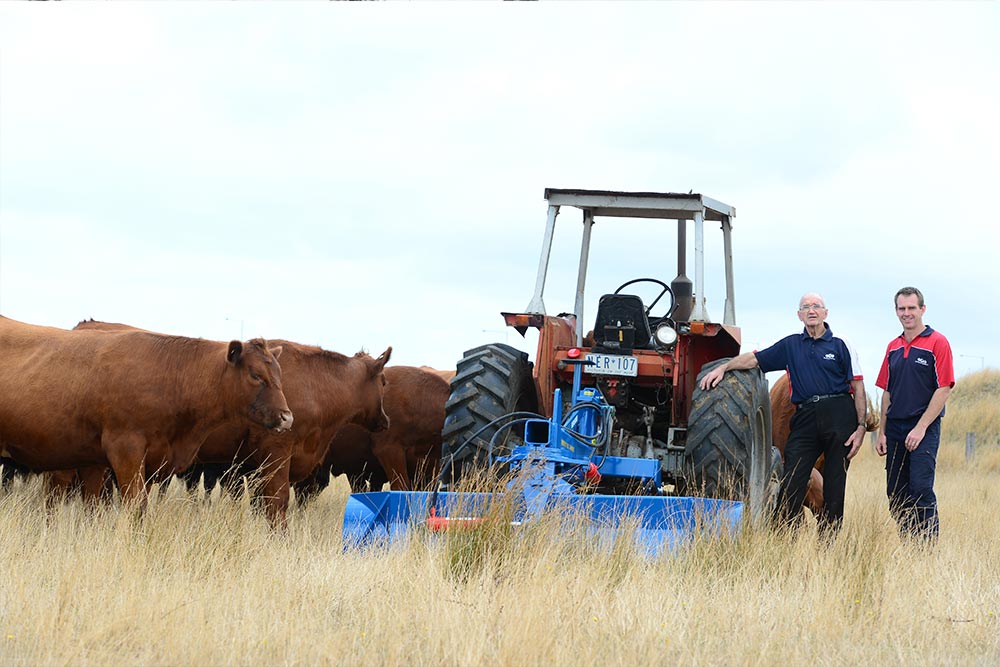
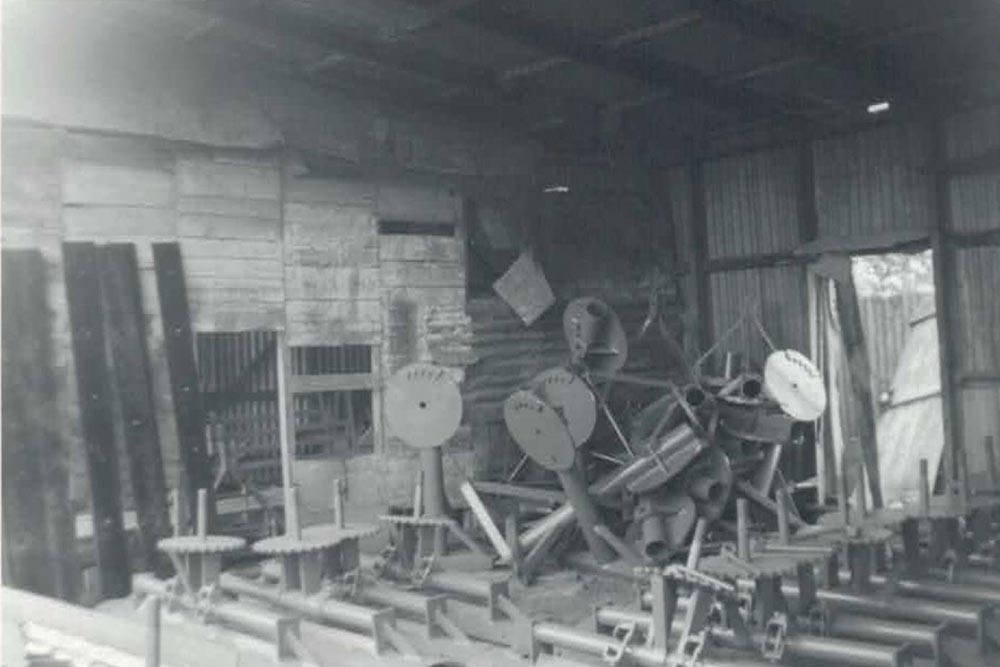
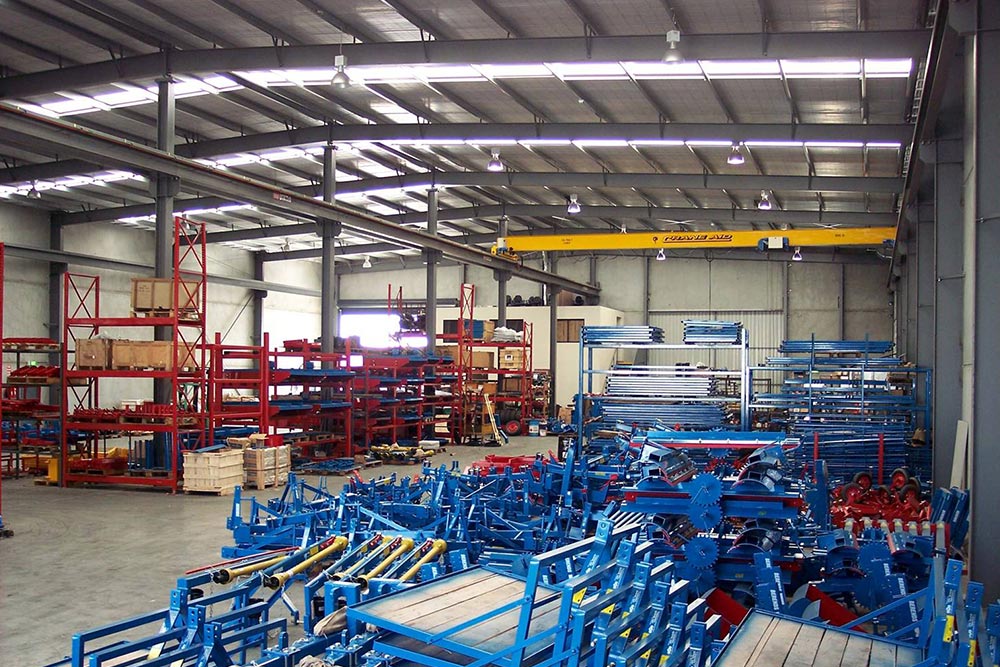
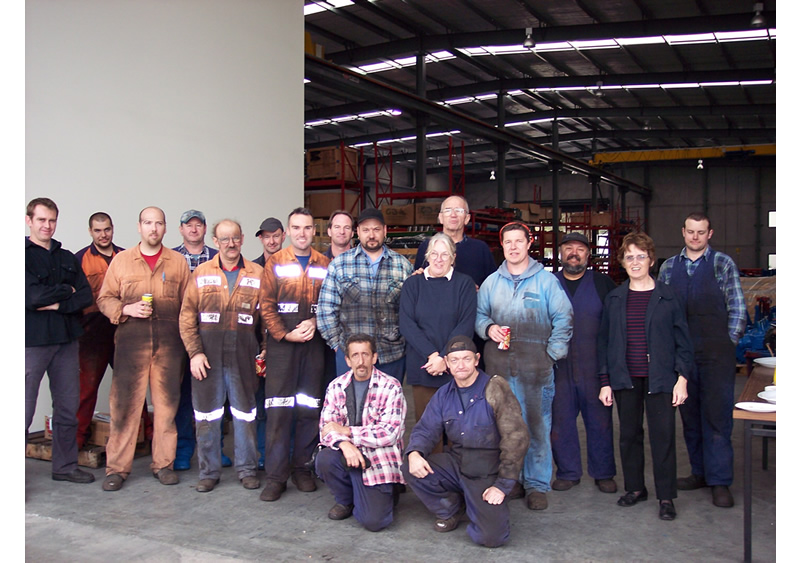
The Rumffs – Journal of the Mountain District Cattlemen’s Association of Victoria. 1983 · 84 edition no. 8 By Linda Barraclough
